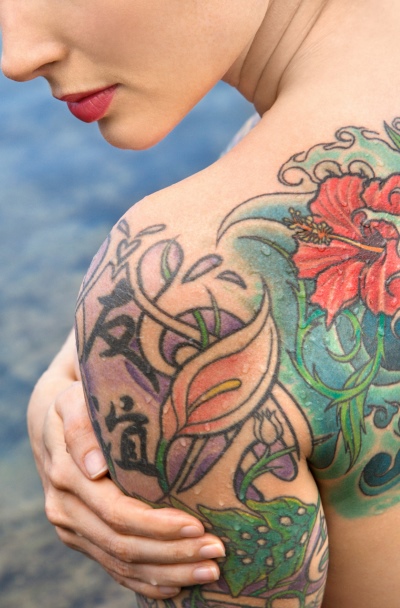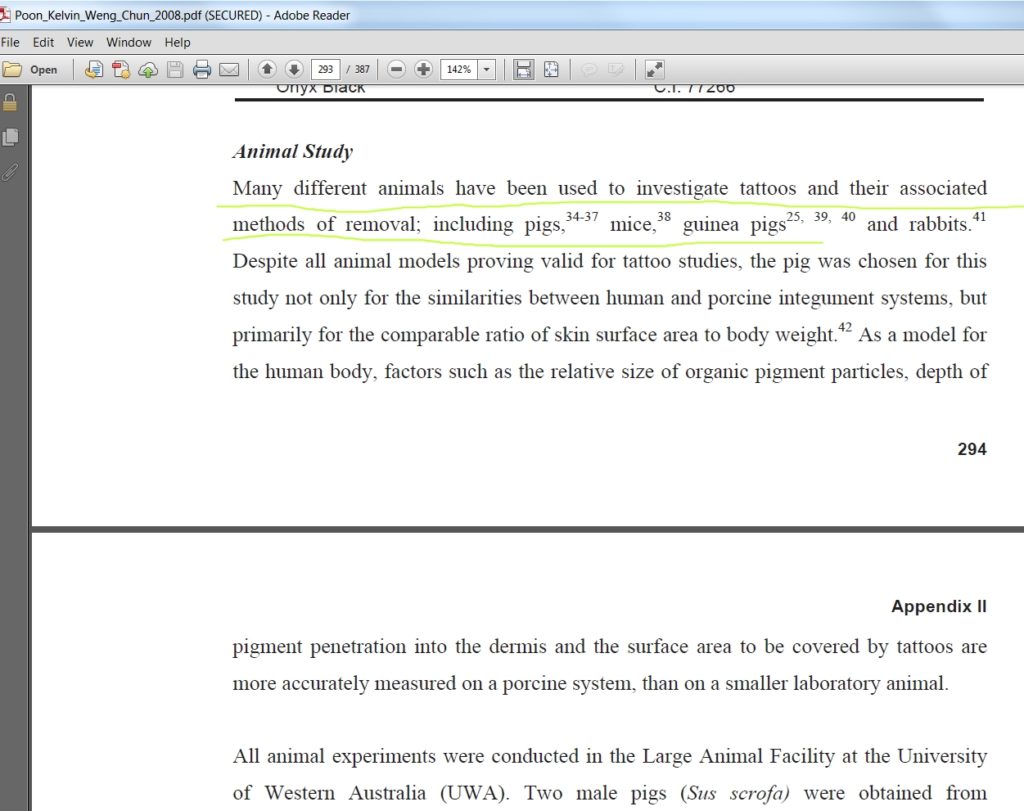 Tattoo Ink Is It Vegan, Safe and Cruelty Free
Tattoo Ink Is It Vegan, Safe and Cruelty Free
It is no longer just body art tattoos that are popular, we are now having our eyebrows, eyeliner and lip-liner tattooed on, using either permanent, or semi-permanent methods.
Women who had mastectomies are having nipples tattooed back on. Some people are even getting their eyeballs tattooed!
For women who have had mastectomies and men and woman who have lost their eyebrows and lashes, then, well done, realistic tattoos can give them a much needed boost of self-confidence, however, shouldn’t we know the answers to the following questions before we decide to get any type of tattooing done?
- What are tattoo inks made from and are they regulated?
- Are tattoo inks tested on animals?
- Is the procedure of tattooing and the laser removal of tattoos tested on animals?
- Can you get vegan tattoo ink?
- What are the dangerous ingredients in tattoo inks?
What Is Tattoo Ink Made From?
Body and cosmetic tattoo inks are made from a pigment that is suspended in a carrier solution so that they can be injected under the skin.
Scarily, some of the inks used to create high colour, contrast tattoos are industrial strength inks designed for printers and car paint. Not exactly something that we should be injecting into our skin!
Some common ingredients you will find in tattoo ink are –
- Carbon Black (CI#77266) – see Campaign For Safe Cosmetics Report
- Iron Oxides
- Lakes
- Titanium Dioxide
- Glycerine
- Alcohol
Manufacturers of tattoo ink do not have to disclose their ingredients, so you can never really be sure what is in them!
Currently the FDA do NOT test for safety, or regulate the pigments and dyes used in tattoo ink!
See the FDA article – Think Before You Ink: Are Tattoos Safe?
If you want to check out the ingredients in different coloured tattoo inks, see this listing of Material Safety Data Sheets (MSD) for the tattoo ink colours from Quantum Tattoo Ink –see list
*Remember every company uses different ingredients and they do not have to tell you what they are!
Animal Testing of Tattoo Ink
I searched for hours on end, trying to unearth a scientific report showing that tattoo ink had been tested on animals and finally found only a couple links including this one below.
It seems the tattoo inks themselves have not been tested, as to date, this has not been a requirement by the FDA, however the effect of tattooing the skin and recovery time has recently been tested on animals.
See – Response Of Mouse To Skin Tattooing
If you type into Google “tattoo investigations using mice”, you will see even more animal studies. You need to do a search under ‘scholarly articles’ in Google.
Animals Subjected To Tattooing and Then To Laser Tattoo Removal Procedures
Animals are commonly tattooed and then subjected to trials for tattoo laser removal.
Here is a rat study on cosmetic tattoo removal.
This study, is to see how well different coloured cosmetic tattoo dyes can be removed off rabbits skins with lasers.
See this New Zealand study on tattoo removal using rabbits.
Animal Ingredients in Tattoo Inks
I have seen literally hundreds of vegans and vegetarians who have tattoos. Last year at World Vegan Day here in Melbourne, practically every person who came to my LivingSafe.com.au stand had a tattoo!
Thankfully, there are now some vegan tattoo ink companies on the market, but… to date, none of these companies have any sort of official accreditation of their cruelty free status from either that I could find.
So while the ingredients that make up the tattoo ink may indeed be vegan, this does not necessarily mean that they are cruelty free. See me article Vegan or Organic Does Not Necessarily Mean Cruelty Free.
There are also tattoo inks being used that still commonly DO contain animal ingredients such as;
- gelatin
- bone char – can be used to make black pigment
- cochineal/carmine
- animal fat glycerine
- shellac
Vegan Tattoo Ink Options
I found a few vegan manufacturers who claim that their tattoo inks are “primarily” (not sure what that leaves out), made from ingredients such as;
- organic pigments – these are the colours – remember no one is regulating these and there is no mandatory testing required.
- witch hazel
- alcohol
- distilled water
On the web, you will find various tattoo ink manufacturers, providing material safety data sheets, showing their company’s transparency. They claim that their inks are tested for heavy metals and that any detected heavy metals are within what is considered safe levels. However do they really know if these supposedly “safe” levels of mercury, lead, cadmium, nickel and copper etc… ARE ACTUALLY SAFE WHEN INJECTED INTO OUR BODIES? We have to remember, there still hasn’t been any scientific testing verifying the safety of tattoo inks.
Tattoo Ink and Toxic Reactions
It is estimated that a third of all the tattoo ink injected into our bodies is absorbed into our bloodstream. Tattoo ink, as it is not regulated, can be contaminated and contains all sorts of solvents, additives and preservatives. You really need to do your research extensively, before deciding to get a body or cosmetic tattoo. You want to ensure the company is vegan and uses cleanly manufactured, hygienic, contaminate-free, sterile ingredients.
Black Tattoo Ink and Nanoparticle Danger
It is the black tattoo ink that is concerning scientist and doctors more than any other colour.
Black tattoo ink may contain large amounts of nanoparticles – meaning it easily enters into our bloodstream. Black tattoo ink also contains the smallest size nanoparticles, when compared to other ink colors, (white ink contains the largest). The smaller the particle the easier the access and absorption into our bodies.
Black ink is often made from soot, or from carbon black which The World Health Organization lists as a type 2 possible carcinogen. Black ink can also be contaminated with carcinogenic Polycyclic Aromatic Hydrocarbons (PAHs) which react negatively when exposed to UV. See report here.
So… my conclusions is this.
If you want to get a tattoo, first spend time researching the pros and cons further and if you decide to go ahead, ensure you pick the right product and the most ethical and hygienic tattoo artist possible.
I would love to hear your thoughts on this topic too, so add your comments below.
Before you leave, if you enjoyed this article sign up to LivingSafe and stay informed! LivingSafe helping you live healthier & safer.
Some other personal care articles you may find interesting are;
How Cosmetics Are Actually Tested On Animals – Animal Testing Of Cosmetics What You Should Know
Avoiding Toxic Chemicals In Hair Dyes. Learn How To Colour Your Hair Safely
The Importance Of Always Choosing Cruelty Free Cosmetics
Mineral Makeup Benefits vs Conventional Makeup
Health Risks Of Using Cosmetic Testers, Old Makeup & Sharing Your Makeup. What You Can Catch!

Leave a Reply
You must be logged in to post a comment.